BINUS University actively provides outreach, general education, and capacity-building initiatives to policymakers and legal practitioners.
- Training for Tax Court Judges
 Prof Shidarta from the Business Law department at BINUS, was invited as a resource person to discuss legal reasoning in front of tax court judges. This event was part of the Technical Training on Tax Law Dimensioning the Code of Ethics and Guidelines for Judge Conduct (KEPPH) organized by the Judicial Commission of the Republic of Indonesia. The training took place from May 25 to 28, 2023, and was attended by 73 tax court judges. This indicates a direct contribution to the legal framework and professional standards within the judicial system, thus reflecting advisory roles.
Prof Shidarta from the Business Law department at BINUS, was invited as a resource person to discuss legal reasoning in front of tax court judges. This event was part of the Technical Training on Tax Law Dimensioning the Code of Ethics and Guidelines for Judge Conduct (KEPPH) organized by the Judicial Commission of the Republic of Indonesia. The training took place from May 25 to 28, 2023, and was attended by 73 tax court judges. This indicates a direct contribution to the legal framework and professional standards within the judicial system, thus reflecting advisory roles.
2. Involvement as Facilitator in Ethics and Legal Interpretation Training for Judges
Prof. Shidarta from the Business Law program served as a facilitator, delivering material on interpretation and construction. The training, titled “Dimensioning the Code of Ethics and Guidelines for Judge Conduct (KEPPH),” was organized by the Supreme Court of the Republic of Indonesia and the Judicial Commission of the Republic of Indonesia. Around 60 judges participated in this training program.
3. BINUS Lecturers Train Tax Court Judges on Legal Reasoning

Lecturers from BINUS University’s Business Law department, Shidarta and Januardo L. Toruan Sihombing, were invited by the Judicial Commission of the Republic of Indonesia to deliver a presentation to Tax Court judges. The event took place at Hotel Harris Sumarecon, Bekasi, and spanned three days. On September 16, 2023, Shidarta and Januardo presented on legal reasoning and its relevance to resolving tax cases.




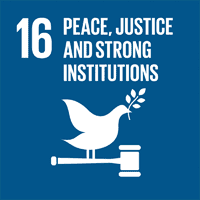
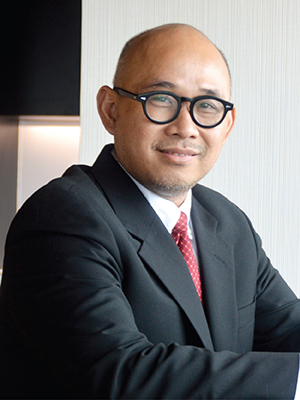
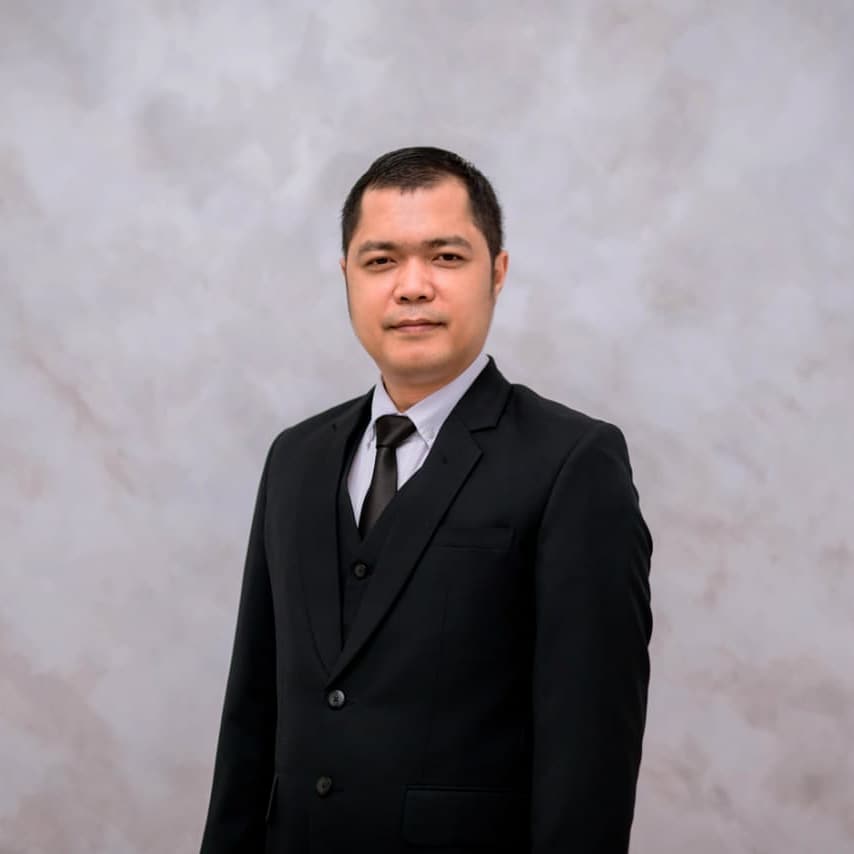

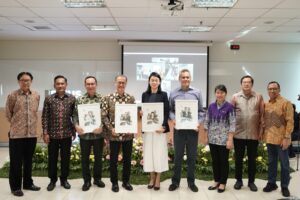 The Binus Advisory Board consists of representatives from industry, government, academia, and associations. This board provides guidance and input to program managers regarding academic affairs, reputation, research, and graduate employability. The board meets regularly to discuss relevant issues, ensuring that stakeholder feedback is incorporated into decision-making.
The Binus Advisory Board consists of representatives from industry, government, academia, and associations. This board provides guidance and input to program managers regarding academic affairs, reputation, research, and graduate employability. The board meets regularly to discuss relevant issues, ensuring that stakeholder feedback is incorporated into decision-making. The BIPP is a mutually beneficial collaboration between BINUS and participating companies. This program serves as a platform for sharing information and developments between the industry and the educational world. The alignment of supply and demand in the internship program, which is part of BIPP, exemplifies the commitment between industry players and the university. The concept of “partner” in BIPP aims to produce job-ready graduates. Each year, BINUS organizes BIPP gatherings and strategic meetings, along with visits to leading companies, to gain insights into industrial operations and innovative practices. This initiative enhances the quality of BINUS graduates and serves as a networking bridge to improve graduate outcomes in the future.
The BIPP is a mutually beneficial collaboration between BINUS and participating companies. This program serves as a platform for sharing information and developments between the industry and the educational world. The alignment of supply and demand in the internship program, which is part of BIPP, exemplifies the commitment between industry players and the university. The concept of “partner” in BIPP aims to produce job-ready graduates. Each year, BINUS organizes BIPP gatherings and strategic meetings, along with visits to leading companies, to gain insights into industrial operations and innovative practices. This initiative enhances the quality of BINUS graduates and serves as a networking bridge to improve graduate outcomes in the future.

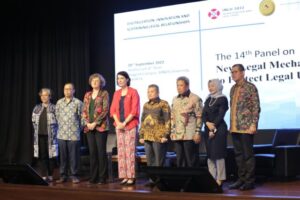
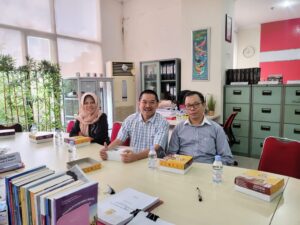

 Prof Shidarta from the Business Law department at BINUS, was invited as a resource person to discuss legal reasoning in front of tax court judges. This event was part of the Technical Training on Tax Law Dimensioning the Code of Ethics and Guidelines for Judge Conduct (KEPPH) organized by the Judicial Commission of the Republic of Indonesia. The training took place from May 25 to 28, 2023, and was attended by 73 tax court judges. This indicates a direct contribution to the legal framework and professional standards within the judicial system, thus reflecting advisory roles.
Prof Shidarta from the Business Law department at BINUS, was invited as a resource person to discuss legal reasoning in front of tax court judges. This event was part of the Technical Training on Tax Law Dimensioning the Code of Ethics and Guidelines for Judge Conduct (KEPPH) organized by the Judicial Commission of the Republic of Indonesia. The training took place from May 25 to 28, 2023, and was attended by 73 tax court judges. This indicates a direct contribution to the legal framework and professional standards within the judicial system, thus reflecting advisory roles.

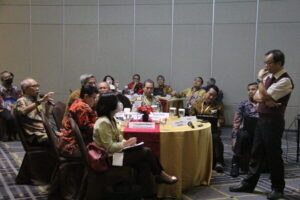

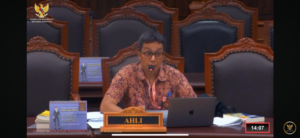 Dr. Ahmad Sofian, S.H., M.A., a criminal law expert from BINUS University, has been appointed by the Directorate General of Taxes (Ministry of Finance) as an expert witness in a Constitutional Court case involving a material test on the Preliminary Evidence Examination in Tax Crimes. His insights are crucial to influencing legal interpretations and the court’s decisions on critical tax-related issues.
Dr. Ahmad Sofian, S.H., M.A., a criminal law expert from BINUS University, has been appointed by the Directorate General of Taxes (Ministry of Finance) as an expert witness in a Constitutional Court case involving a material test on the Preliminary Evidence Examination in Tax Crimes. His insights are crucial to influencing legal interpretations and the court’s decisions on critical tax-related issues.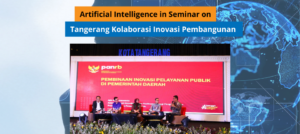 On November 23, 2023, Prof. Dr. Juneman Abraham, M.Si. participated as a speaker at the “Tangerang Collaboration for Innovative Development” seminar, which aimed to enhance regional innovation for sustainable development. This initiative will be followed by a Memorandum of Understanding between BINUS University and the Tangerang City Government. Additionally, the Rector of BINUS University serves as an Advisor to the Tangerang City Smart City Council, as outlined in the Mayor’s Decision No. 800/Kep. 476-Kominfo/2021. This highlights BINUS’s ongoing involvement in regional governance and innovation.
On November 23, 2023, Prof. Dr. Juneman Abraham, M.Si. participated as a speaker at the “Tangerang Collaboration for Innovative Development” seminar, which aimed to enhance regional innovation for sustainable development. This initiative will be followed by a Memorandum of Understanding between BINUS University and the Tangerang City Government. Additionally, the Rector of BINUS University serves as an Advisor to the Tangerang City Smart City Council, as outlined in the Mayor’s Decision No. 800/Kep. 476-Kominfo/2021. This highlights BINUS’s ongoing involvement in regional governance and innovation.